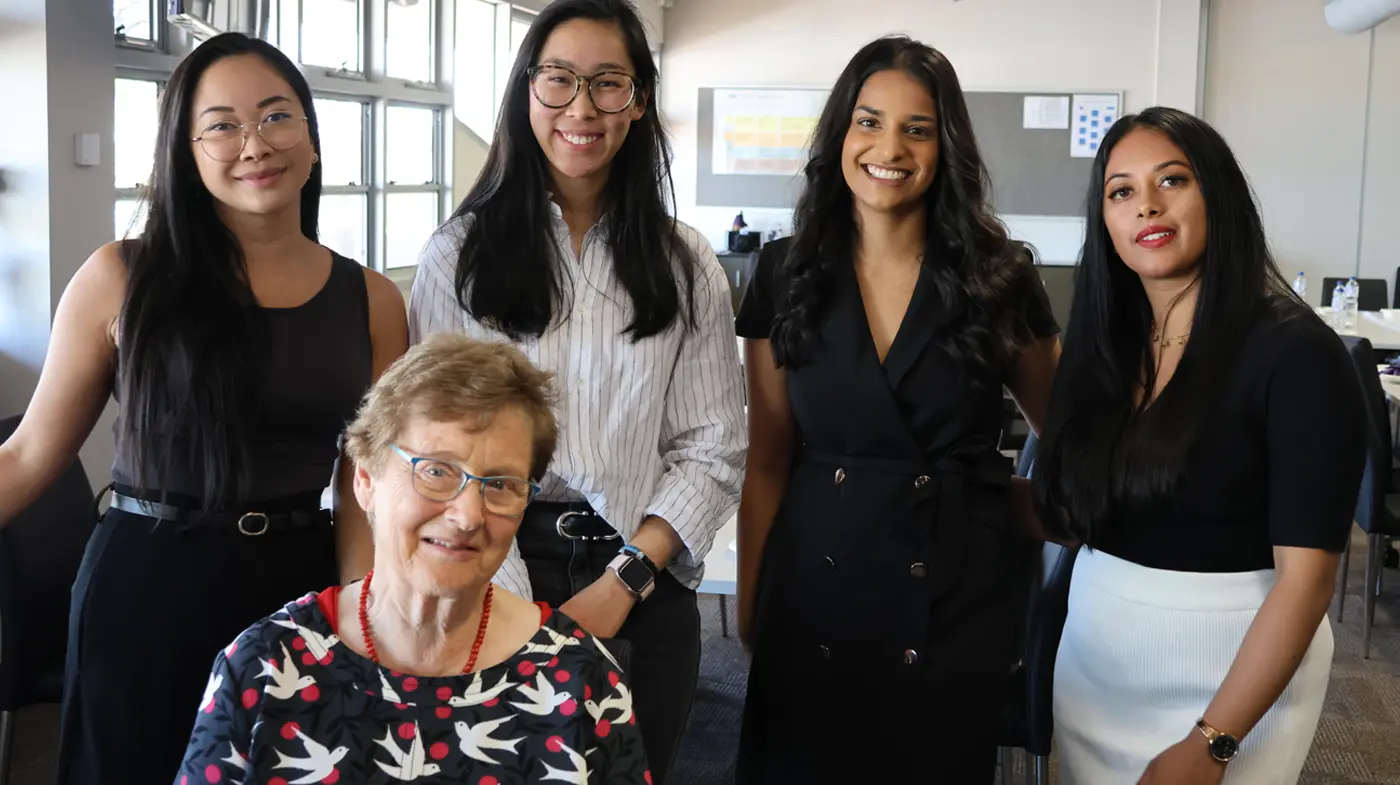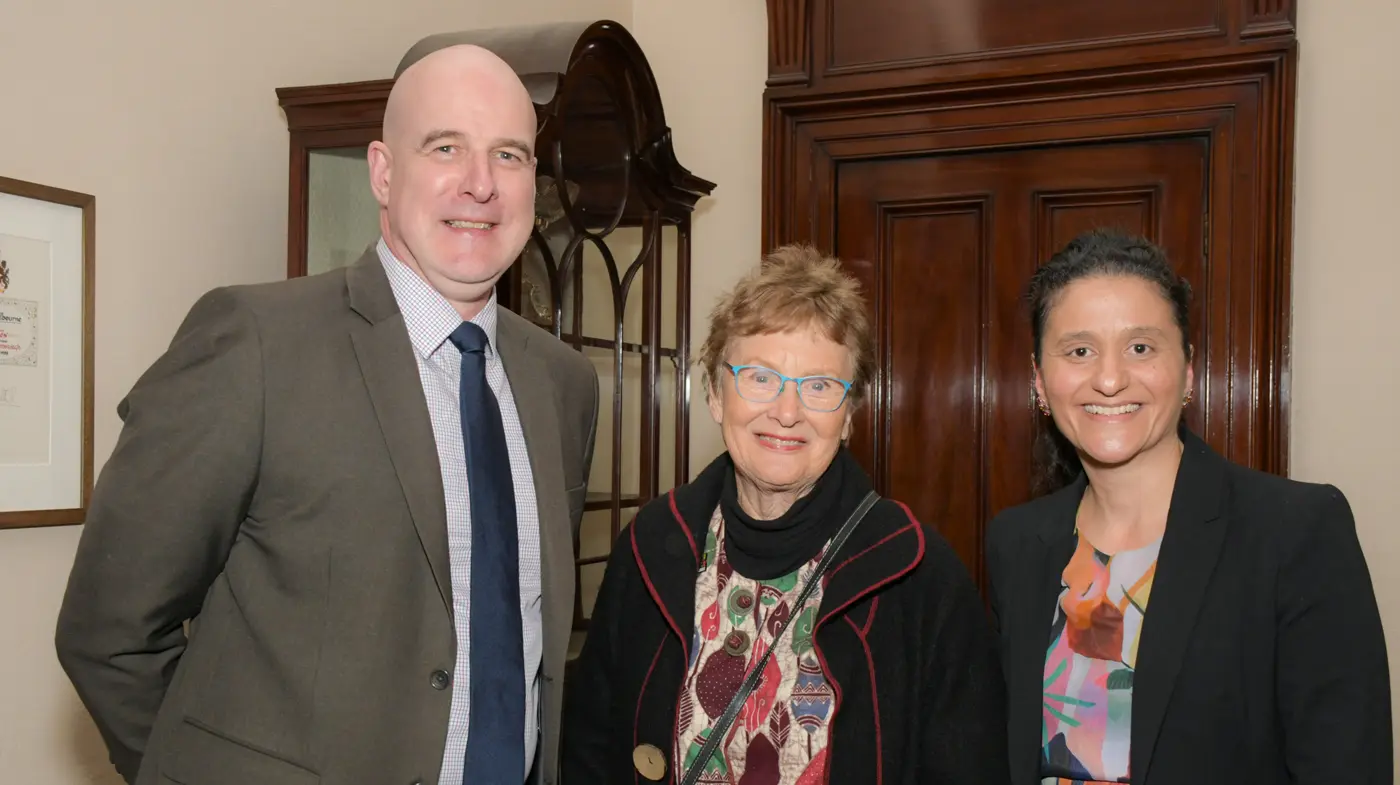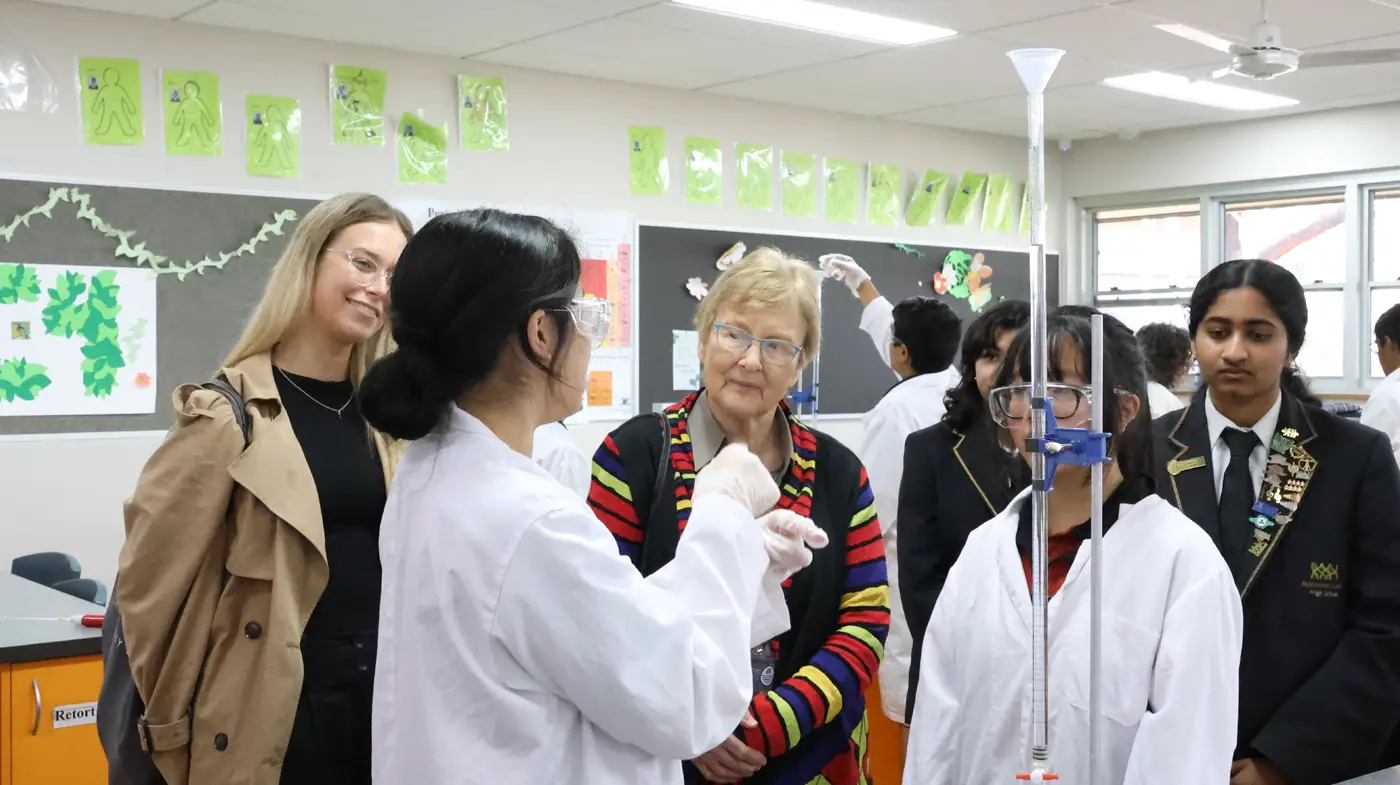Professor Suzanne Cory
Professor Suzanne Cory-AC, PhD, PresAA, FRS
Professor Suzanne Cory is one of Australia’s most distinguished molecular biologists. She was Director of The Walter and Eliza Hall Institute and Professor of Medical Biology of The University of Melbourne from 1996 to 2009. She is currently a Research Professor in the Molecular Genetics of Cancer Division at The Walter and Eliza Hall Institute and a Vice-Chancellor’s Fellow of The University of Melbourne.
Personal
Suzanne Cory was raised in Kew and educated at Canterbury Girls’ Secondary College, University High School and The University of Melbourne. In 1966, fired with enthusiasm for the new science of molecular biology, she went to its mecca, the MRC Laboratory of Molecular Biology (LMB) in Cambridge, England, to undertake PhD studies. At that time, the LMB was home to three Nobel Prize winners, including Dr Francis Crick, co-discoverer of the structure of DNA, and Dr Fred Sanger, whose new RNA sequencing methods became the foundation of her PhD. It was also there that she met US-born scientist Dr Jerry Adams, whom she later married. During their post-doctoral sojourn at the University of Geneva, Cory and Adams began the dynamic research partnership that continues to this day. They have two daughters.
Research Interests
Suzanne Cory’s research has had a major impact on the understanding of immunology and the development of cancer.
After pioneering PhD studies determining the sequence of transfer RNA, her post-doctoral studies at the University of Geneva focussed on sequence analysis of R17 bacteriophage RNA as a model messenger RNA. When Cory and Adams came to Melbourne in 1971 to the Walter and Eliza Hall Institute of Medical Research, they helped to introduce gene cloning technology in Australia.
During their first decade in Melbourne, they addressed a central puzzle regarding the immune response: how does the body make the myriad antibodies needed to fight diverse infectious agents? Their laboratory helped uncover the astonishing solution: antibody genes are encoded as bits and pieces which can combine in a myriad ways, thereby creating much greater diversity with which to fight infection.
In 1981, their attention turned to the nature of the genetic accidents that cause cancer. Their laboratory showed that damage to chromosomes can activate cancer-promoting genes. They tracked down the genetic mutation that leads to Burkitt’s lymphoma, a malignancy of antibody-producing cells. They then engineered novel lines of cancer-prone mice and, in collaboration with colleague Alan Harris, studied the early stages of disease and identified synergistic mutations.
The current focus of their research is how cells decide whether to live or die. In 1988, David Vaux made the seminal finding in their laboratory that bcl-2, the gene responsible for follicular lymphoma, promotes cell survival. This discovery opened an entirely new way of thinking about cancer development, since all other oncogenes (cancer-causing genes) had been found to promote cell proliferation. The bcl-2 gene proved to have numerous relatives, and some actually promote cell death (apoptosis) rather than cell survival. Together with Andreas Strasser, David Huang and numerous other colleagues, they are now focussed on understanding how the opposing factions of bcl-2 family arbitrate the cellular life-or-death decision. This knowledge will lead to the development of more effective therapeutics for cancer and degenerative diseases.
Suzanne Cory was elected a Fellow of the Australian Academy of Science in 1986, a Fellow of the Royal Society in 1992, a Foreign Member of the US National Academy of Sciences of the US in 1997, a Foreign Member of the American Academy of Arts and Sciences in 2001, an Associate Foreign Member of the French Academy of Sciences in 2002 and an Academician of the Pontifical Academy of Sciences in 2004 and an Associate Member of the European Molecular Biology Organization in 2007. Her scientific achievements have attracted numerous honours and awards, including the Burnet Medal of the Australian Academy of Science in 1997, the Australia Prize (joint recipient) in 1998, the Charles S. Mott Prize (joint recipient) of the General Motors Cancer Research Foundation in 1998, a L’Oréal-UNESCO Women in Science Award in 2001, the Royal Medal of The Royal Society in 2002 and the Pearl Meister Greengard Prize in 2009. In 1999 she was appointed Companion in the General Division of the Order of Australia and in 2009 she was awarded the French decoration of Chevalier de l’Ordre de la Légion d’Honneur.
In 2010 Suzanne Cory became President of the Australian Academy of Science – the first woman to be elected to the position that she held for four years to 2014. In July 2011 Suzanne Cory was awarded the 2011 Colin Thomson Medal for her contributions to cancer research. In August 2012 Suzanne Cory was awarded the Eureka Prize for Leadership in Science. In 2013 she was honoured through election as an Honorary Member of The Japan Academy and election as a Fellow of the Inaugural Class of the American Association of Cancer Research (AACR) Academy.
A Valued Supporter of Our School
Professor Cory is a fond and enthusiastic supporter of our school community. She regularly visits to take part in a range of activities that support both our curriculum and student-led initiatives. Her ongoing presence at key events, including our annual Presentation Evening, reflects her genuine admiration for our students and their achievements.
Both staff and students deeply value her involvement and the opportunity to engage with her during her visits.

International Women’s Day 2023

Presentation Evening 2023

2024 Science Week